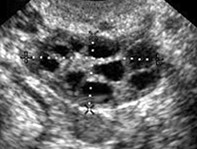Peer Reviewed
Feature Article Endocrinology and metabolism
Polycystic ovary syndrome. Can we make the diagnosis and management easier?
Abstract
Polycystic ovary syndrome, a common endocrine disorder in women, has many different presentations, spanning adolescence through to the menopause. Initially placed into the gynaecological realm, it is now also widely accepted as a metabolic disease of uncertain origin and considered as treatable but not curable.
Key Points
- Polycystic ovary syndrome (PCOS) is a common female endocrine disorder and the leading cause of excessive androgen production, impaired ovulation and infertility.
- Fundamental problems of PCOS including hyperandrogenism, hyperinsulinaemia, abnormal serum lipid levels and obesity have broad long-term health implications, including an increased risk of diabetes and cardiovascular disease.
- PCOS is a highly variable condition with a broad spectrum of symptoms, and the diagnosis can often be delayed.
- The aetiology of PCOS is still obscure but is most likely multifactorial with a strong genetic component.
- Effective lifestyle modifications improve pregnancy rates and metabolic profiles in most patients with PCOS without the need for medical intervention.
- GPs are well placed to make an early diagnosis of PCOS and provide education and management to help patients avoid the long-term consequences of this condition.
Purchase the PDF version of this article
Already a subscriber? Login here.

